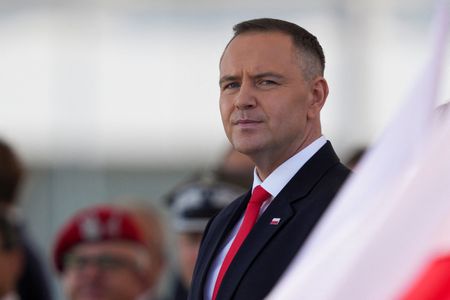By Tom Sims and Alexander Hübner
FRANKFURT (Reuters) -Deutsche Pfandbriefbank (PBB), one of Germany’s top property financiers, swung to a loss in the second quarter after booking higher risk provisions as it withdraws from the U.S. market, figures on Wednesday showed.
PBB said in May that it would not take on new business in the United States as it considered the country too volatile under President Donald Trump, and in June it opted for an complete exit and retracted its previous financial guidance for the year.
The bank’s quarterly net loss was 266 million euros ($310.79 million), compared with 11 million euros in profit a year earlier, while provisions for loan losses rose to 297 million euros from 56 million euros a year earlier.
Shares were 7.1% lower mid-morning in Frankfurt.
“The withdrawal from the US markets will have a considerable negative impact on our result this year,” PBB CEO Kay Wolf said.
The bank expects to post a net loss for the full year, despite a “significant pre-tax profit” in the second half of the year.
The earnings follow a wave of bad news for the bank, which dates back to the 1860s and was bailed out by the government in the 2009 financial crisis.
Last year, the lender navigated what it called the “greatest real estate crisis” since 2009 as profitability shrivelled, short sellers bet against the bank and its bonds came under pressure from a credit rating downgrade.
U.S. commercial real estate has come under particular pressure due to high office vacancy rates, falling property prices after interest rate hikes, and more people working remotely.
Pfandbriefbank had expanded into the U.S. before the coronavirus pandemic. The United States makes up 12% of its portfolio but 45% of the non-performing loans.
“This is obviously not a good ratio,” Wolf told journalists.
The bank also announced the purchase of a stake in Deutsche Investment Group, a real estate property manager, with a price tag in the “mid double-digit million euro range”.
($1 = 0.8559 euros)
(Reporting by Tom Sims and Alexander Huebner, editing by Miranda Murray and Christina Fincher)











